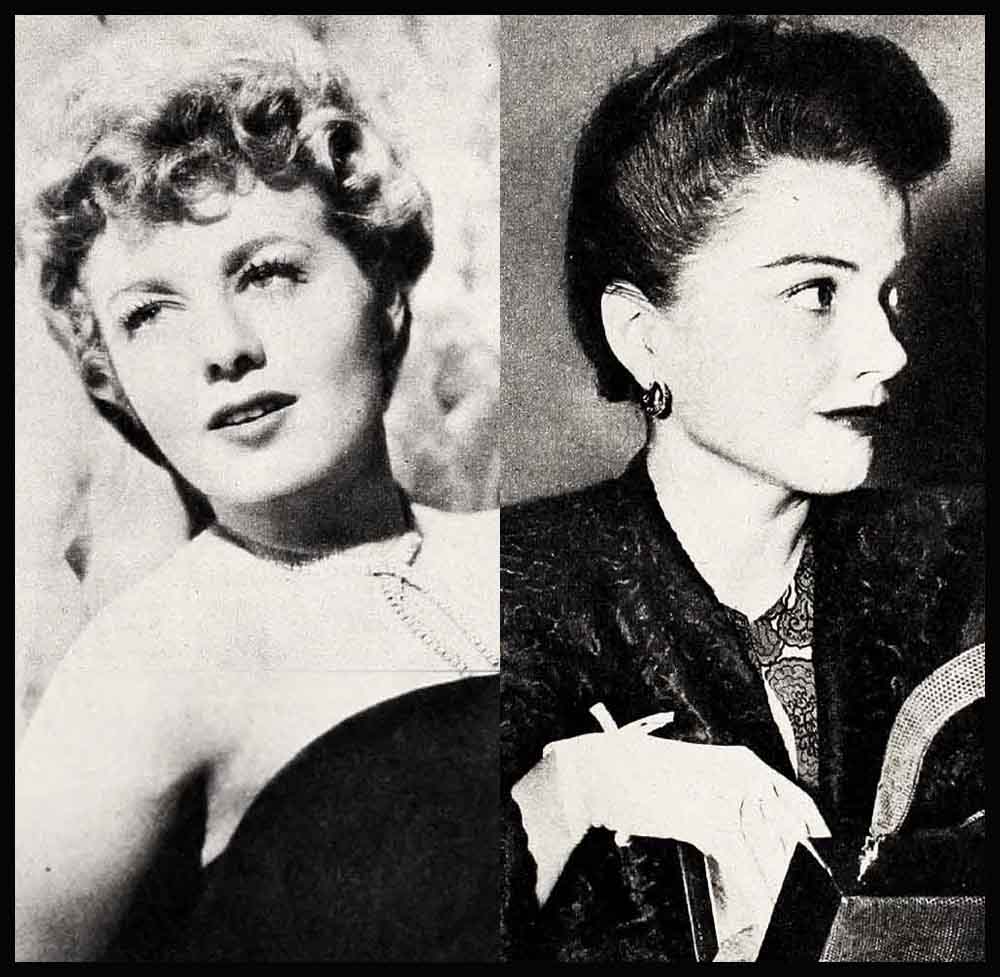
How A Star Is Born
In Hollywood there are between thirty-five and sixty individuals, who—if dropped by parachute onto the main street of almost any large city in the world—would be recognized instantly.
Let us suppose that you who are reading this, are (1) still in high school, or (2) enrolled in college or dramatic school, or (3) are working to save enough money to pay for a year’s tuition in a good school of dramatic art, or (4) are on the lower rungs of the theatrical ladder. To you, the lives of these great ones appear, in all probability, to be secure, idyllic, free from trouble.
Don’t you believe it.
When, after ten to twenty years of struggle, you attain international recognition, one of your first non plusing discoveries is that you can never really relax. Your body, your mind, and your spirit must remain keen.
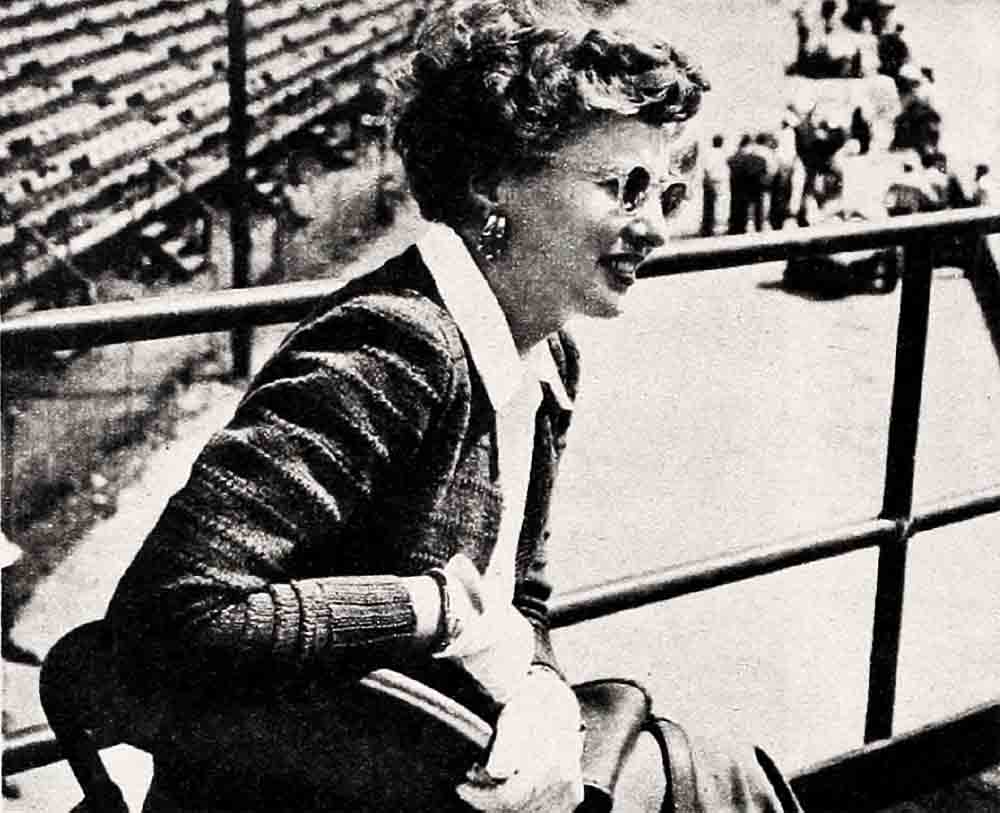
If you had gone into the manufacturing business, you would have been able to develop an organization to carry on the manufacturing process. If you had taken up designing you could have trained apprentices, and if you had taken up law, you could have secured clerks to attend to some of the drudgery. Even if you had become a doctor, you could have bolstered your office with a nurse or two. But an actor is in business by himself, for himself. He, himself, is his only asset. When he stops working, the register stops ringing. Furthermore, when he fails, the failure is infinitely more heartbreaking than a commercial failure. A commercial failure may be blamed upon a hundred economic factors; a theatrical failure is blamed only upon the individual himself.
For this reason, you, as a successful player, come to realize that your time and your money must be re-invested constantly in yourself. You must keep posted on the new techniques for retaining the physical, mental, and emotional vitality which is, in appearance and effect, equivalent to youth, but which goes beyond the powers of youth.
Your first ironical discovery about success would be this: For the first time in your life, you would be financially able to buy anything you wanted to eat, but you probably couldn’t eat it. If you didn’t have ulcers, you would be on a weight-controlling diet.
Every star in Hollywood, with the exception of half a dozen naturally lean exceptions, diets in some way. You would find that it requires indescribable fortitude to sit at the luncheon table with other people and eat one rye wafer and a bowl of clear soup while everyone is eating queen’s pancakes, asparagus with Hollandaise sauce, orange rolls with sweet butter, and banana cream pie.
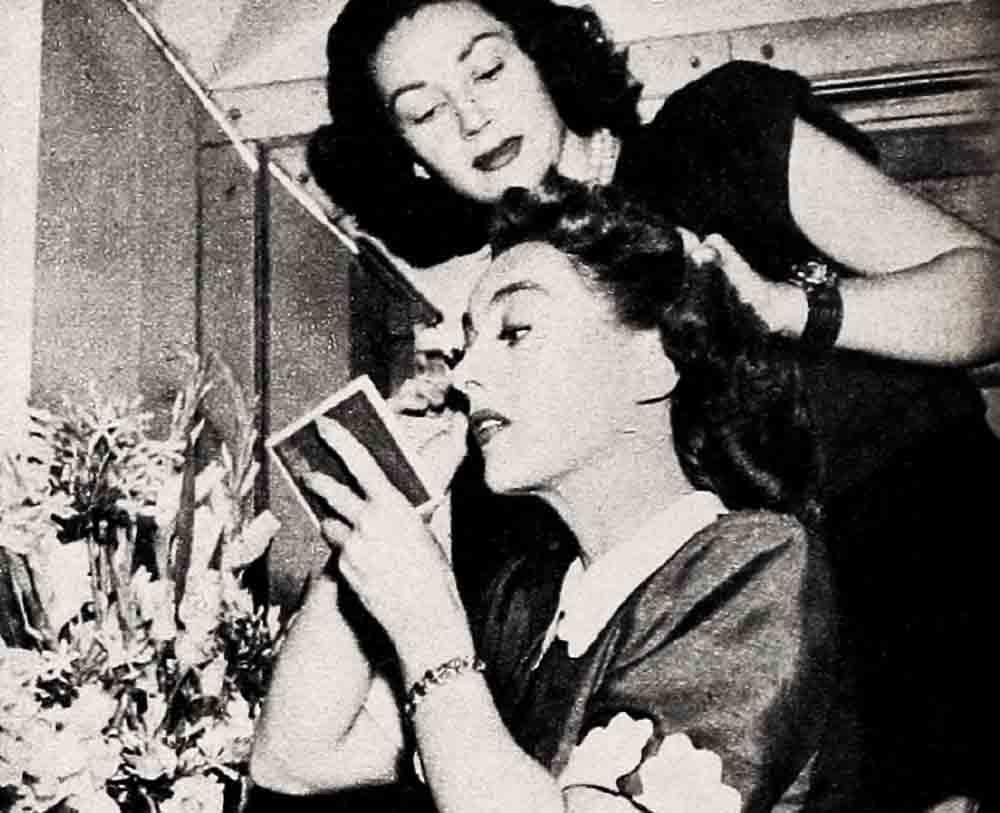
After dancing all morning, Shelley Winters often consumes one bowl of clear broth, one soft-boiled egg and one slice of unbuttered pumpernickel bread tor luncheon. Anne Baxter can be fairly happy over a medium serving of cole slaw, a rye wafer, and a glass of buttermilk. Claudette Colbert (who is naturally slender) enjoys one hard-boiled egg, a generous green salad with vinegar and oil and a cup of tea for luncheon.
(Caution: Don’t attempt to follow any of these luncheon diets without consulting a doctor. A doctor knows exactly what food combinations provide the greatest amount of energy with the least caloric content, but each person’s diet, as you must have noticed, is different because it has been planned for the individual.)
You also would have to maintain muscular tone by exercise of some sort. Like the Selznick stars of a few years ago, you might take body-tone and muscular control instruction from a wonderful Swiss exercise master; you might, like Jose Ferrer, take up ballet; you might learn golf, like Barbara Stanwyck, or tennis, like Ginger Rogers. You might swim every day, take fencing lessons, or bicycle. Like some stars, you might prefer to have a competent masseuse pummel your muscles into glowing tone.
In addition, you, as a great star, would have to set up a schedule of rest. You would try to get at least eight hours of undisturbed sleep every night, preferably nine. When you were between pictures, you might do as Dolores del Rio does, turn in at three or four in the morning, and sleep until sunset. Dolores del Rio is now in her early forties; she looks, even to the camera’s merciless eye, no more than twenty-five. She attributes this youthfulness to her plan for avoiding sunlight whenever possible (to preserve the texture of her skin), and to sleeping between twelve and fourteen hours each night when she is not working.

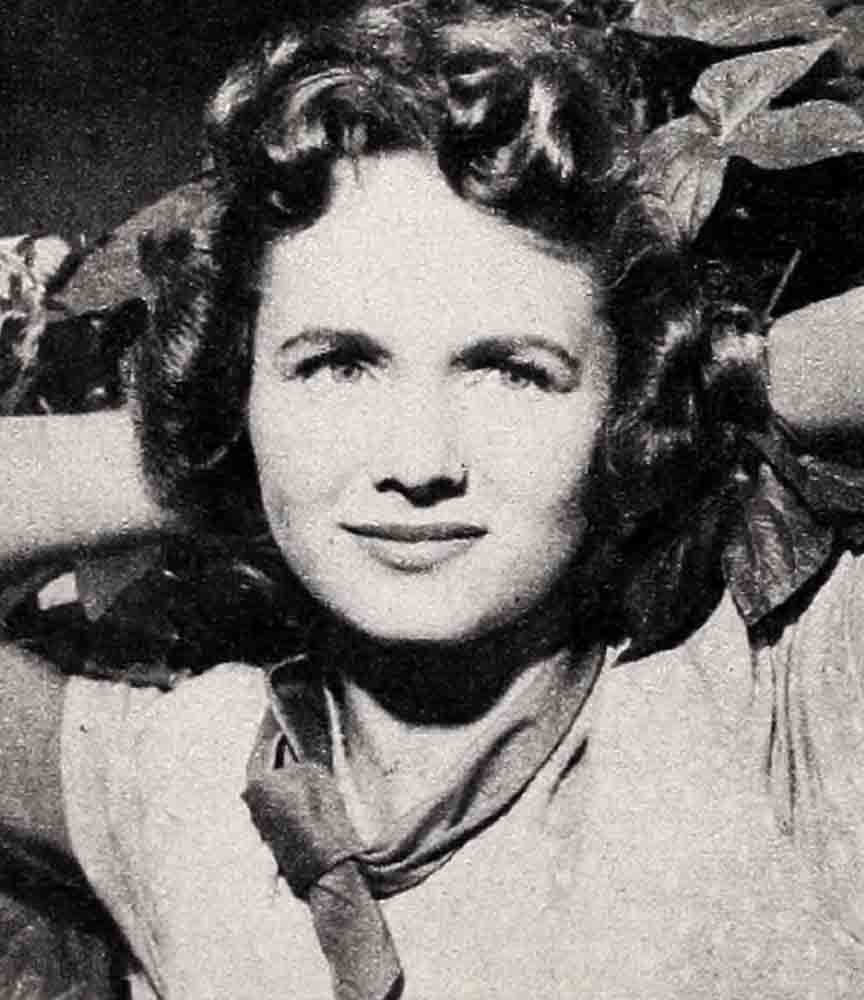
Although you, as a great star, would be welcomed at any night club in the world, you would make few visits of that sort. You would discover that a smoke-filled room would give you a hangover more quickly than an alcoholic beverage would. The air-conditioning in some clubs would cause a sinus reaction and a raw throat, and the stale air in others would dull your eyes and slow your reflexes for days.
Your problems would be commensurate with your success—tremendous.
First of all, the money problems which had been playful puppies during the phase of your career described in last month’s issue, would now have become full grown wolves. Because of the present day tax structure, no one who depends upon himself as a source of income gets rich. Audiences throughout the world would be thunderstruck if they knew how many successful people are thousands upon thousands of dollars in debt to the government for back income taxes. Barbara Stanwyck was enormously flattered when she was offered a long-term radio program which would have paid her $75,000 in one year. After consulting with her business manager, she sadly refused the offer because it would have advanced her into a high tax bracket, and once in that bracket it would have cost her over $100,000 to take in the aforementioned $75,000. Sounds crazy, but who said the tax structure was sane?
Sometimes the people at the top of the heap would like to ask for a little financial consideration themselves. They discover, and quickly, that if the owner of a famous face appears in a small shop and asks the price of a garment, there is often no price tag. The salesgirl says the coat or dress just came in, hasn’t been marked yet, and how much is it, Mr. Shrdle? Mr. Shrdle says he will look it up. Eventually he returns and quotes an astronomical figure.
This attitude, repeated by the butcher, baker, and candlestick maker, gives stars a poor impression of the world.
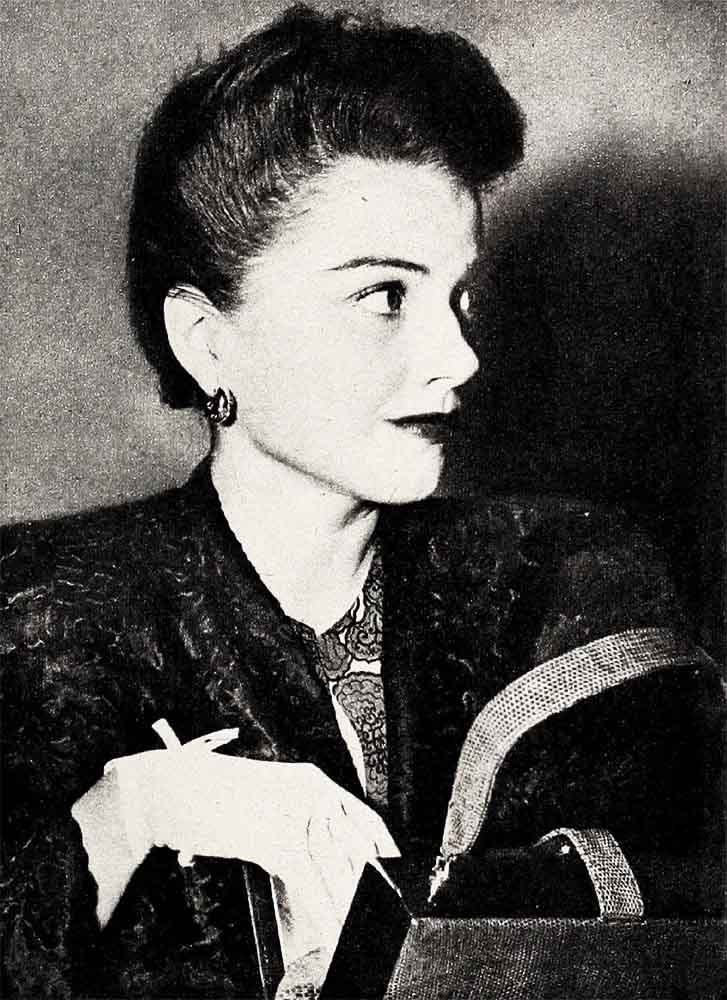
The question of tipping is another wearisome one. Joe Doakes can tip the parking lot attendant twenty-five cents with a clear conscience. A celebrity had better give with the dollar bill, or he acquires a reputation for being a slow man to part with cabbage.
The demands for charity are enormous. The average citizen is privileged to contribute to those charities in which he is personally interested. The celebrity must contribute to every drive started.
If you had become a person of world renown, you would have learned that you must carry insurance at least twice as heavy and four times as comprehensive as that carried by the average citizen. You would have learned that you could never loan your car to anyone. If it should be in even a minor smash-up, you would be sued, and sued for plenty.
And so your dog would have to be insured, your children would have to be insured; your servants, your swimming pool would have to be insured.
In addition to these (and many more) personal problems, the arrived star has serious career dilemmas. One of the greatest is this; When a youngster first starts the long climb to fame, everyone pulls for him. The technicians in the studios give a little extra care to the coaching, the make-up, the wardrobe and the photographing of the neophyte. The publicity department is delighted to have “fresh copy” to offer newspaper and magazine reporters. The advertising departmen is overjoyed at sight of a new face. In brief, all the trends are upward.
But, after a star has arrived and has of time, a strange combination of mild hostility and boredom is likely to occur. A “show-me” attitude succeeds the former admiration and booster spirit.

Theater owners have been known to compile a list of competent players and tab them “box office poison.’’ The public begins to write to studios, clamoring for “new faces.” Casting directors begin to reject an established star with the executioner’s phrase; “His price is too high. Ana he’s so thoroughly typed that his presence in the picture gives the story away.”
All of this sets up a violent career undertow which the established star must be prepared to outswim if he or she objects to being swept out to oblivion.
And then, inevitably, the cruel question of age rears its graying head.
After a recent preview, a Hollywood columnist heard one member of the audience say to another, “Debbie Reynolds reminds me of a young Janet Leigh Janet is a glorious twenty-four.
Of course the public has a general notion of these problems, but they are constant, prowling dragons to successful stars. Inevitably their presence sets up a series of anxiety complexes in the mind of even the most secure star.
Theatrical people almost never believe in their own success. Particularly in Hollywood, the history of a star reaching the zenith, then disappearing, is too well-written in the forecourt of Grauman’s Chinese. If you, personally, want proof of the brevity of screen success, go to your public library and study a copy of Photoplay for the year 1940.
Taking this fast fading into consideration, a player suddenly feels that everything he does must be right, absolutely right Rightness, unfortunately, is an attitude. It is impossible to please everyone.
Even when criticized, a player must be constructive about it. He or she may feel like murdering the critic, but the next time they meet, there must be nothing but sweetness and light between them.
There are many compensations, when one is at the top of the heap, to counterbalance the problems. This is obvious, and many of the compensations are obvious. The take-home pay, even after income taxes, is good. Prestige is great. Social opportunities are without limit. There is seldom a dull moment.
There are many less obvious enjoyments, however. As Joan Crawford says, “One of the happiest facts of stardom is that, in the process of reaching the top. a player learns a tremendous respect for the motion picture industry.”
Joan loves her job, and is celebrated for her spirit of close cooperation. She never keeps a company waiting; she listens carefully to the suggestions made by her director and works studiously to bring his, not her, conception of a scene and the story as a whole to the screen.
Her appreciation of the work of everyone involved in a film is acute, and she is quick to give credit. She regards herself realistically as one element, and only one, in a complex structure.
Another sweet dividend of success is the realization that one knows. If you had become a great star, you would know by what process your position was acquired. You would be able to look backward a long way and to see every turn of the road. You would have acquired polish, technique, and self-reliance.
When called upon to do a difficult scene, you would feel adequate. You would be able to approach the problem from a number of different angles; you would be able to discuss it intelligently with the director. You would know.
The question of time, precious time, would have been resolved for you, as a great star. You would have acquired enough judgment to say “no” to many of the useless, time-consuming activities in which you had engaged when you were climbing. You would be able to travel. Probably you would make several pictures overseas as Tyrone Power, Deborah Kerr, Joseph Gotten, Irene Dunne Spencer Tracy, Gregory Peck, Robert Taylor and Errol Flynn have done.
All the world would spread out to welcome you. Wherever you went you would be regarded as a friend; you would have the time, the money, and the maturity to make the most of an experience of which every imaginative person dreams.
Finally your success would enable you to do the things which every devoted parent dreams of doing for his children. From birth, they would be given the finest of medical care; they would be sent to good schools and they would be equipped to select the profession of their choice without pressure of family finances.
With gratitude for your success, with love for those with whom you were able to share it, with a philosophical eye on the future, you—as a great star—would never forget the one inescapable truth of show business: A player never actually reaches the top, because his next role may be his best. A player has never really arrived, because—until the day of his death—a player is an applicant in search of a job.
THE END
It is a quote. PHOTOPLAY MAGAZINE FEBRUARY 1951


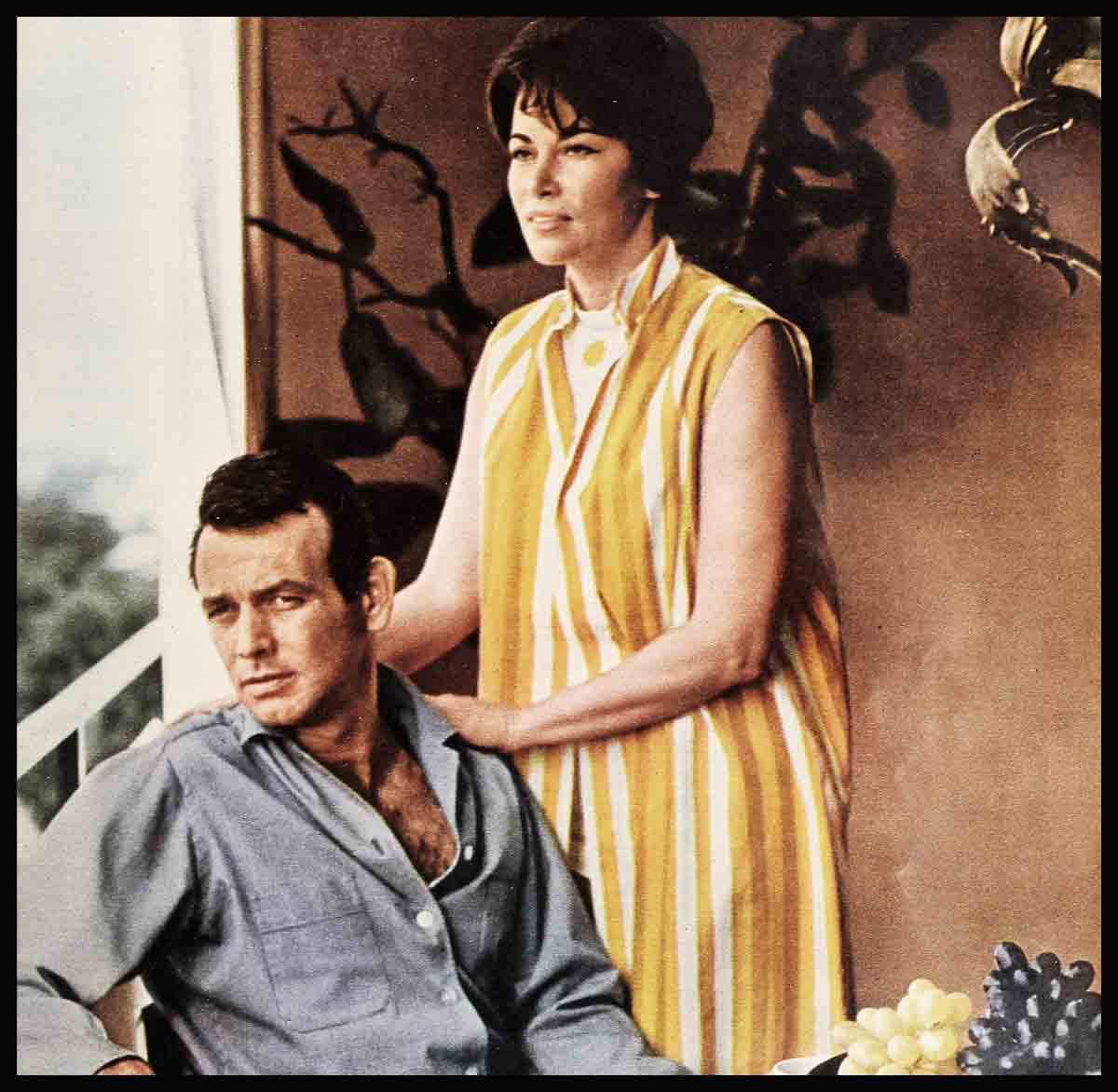


No Comments